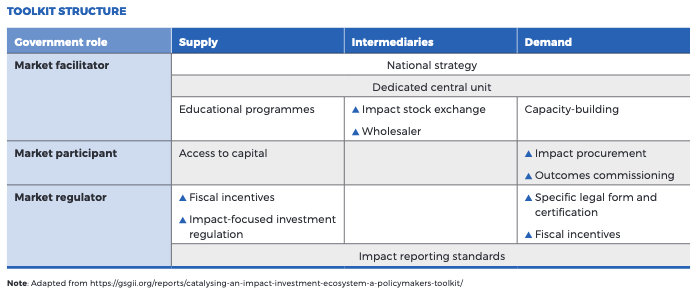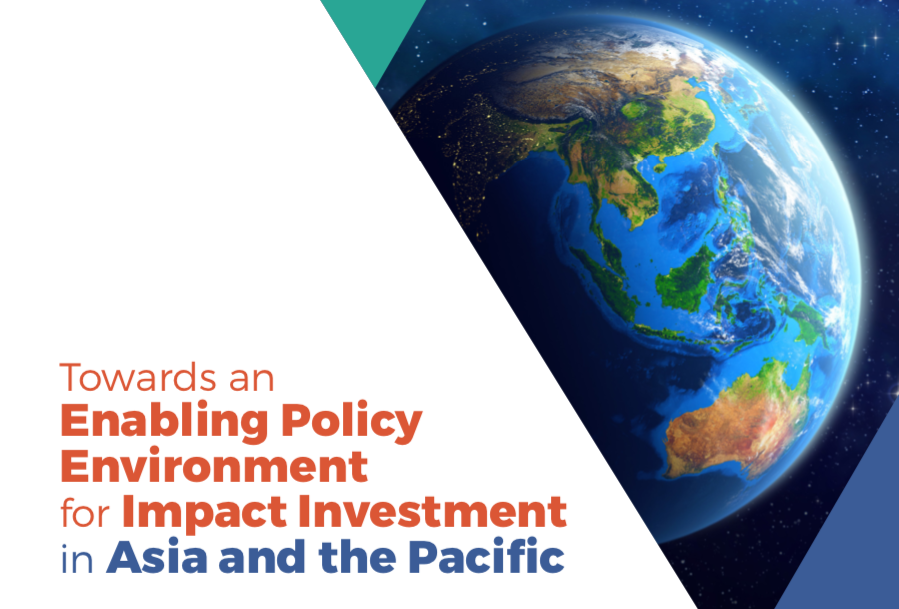The Global Steering Group on Impact Investment (GSG) and the United Nations Economic and Social Commission for Asia and the Pacific (ESCAP)have jointly published a new report that provides a snapshot of current policymaking for impact investing in the Asia-Pacific region. An Endeva team led by Dr. Christina Tewes-Gradl supported the development of the report with research and writing.
The report “Towards an Enabling Policy Environment for Impact Investment in Asia and the Pacific” is aimed at policymakers and wider stakeholders seeking to engage with governments to promote meaningful change in the impact policy space. It aims to provide a basis for dialogue among policymakers as well as with ecosystem stakeholders to foster cross-learning and to promote policy actions that nurture the impact investment ecosystem across the countries of the region. The report is based on the extensive and ongoing work of ESCAP and GSG with key stakeholders in the region.
Governments can leverage private capital for societal objectives by supporting impact investment. Impact investments are investments made with the intention to generate positive, measurable social and environmental impact alongside a financial return. An enabling policy environment helps to attract more funds to impact investment, to grow impact-oriented businesses, and to facilitate the match between supply and demand. Governments can support the impact investment ecosystem in three different roles: market facilitator, market participant and market regulator. The policy toolbox maps the existing policy tools on these two dimensions (see figure below).

The report comes with an annex of 18 country profiles, each providing a snapshot of current impact investing policies in March 2020. The countries are Bangladesh, Bhutan, Brunei Darussalam, Cambodia, China, India, Indonesia, Japan, Laos People’s Democratic Republic, Malaysia, Myanmar, Nepal, the Philippines, the Republic of Korea, Singapore, Sri Lanka, Thailand and Viet Nam.


